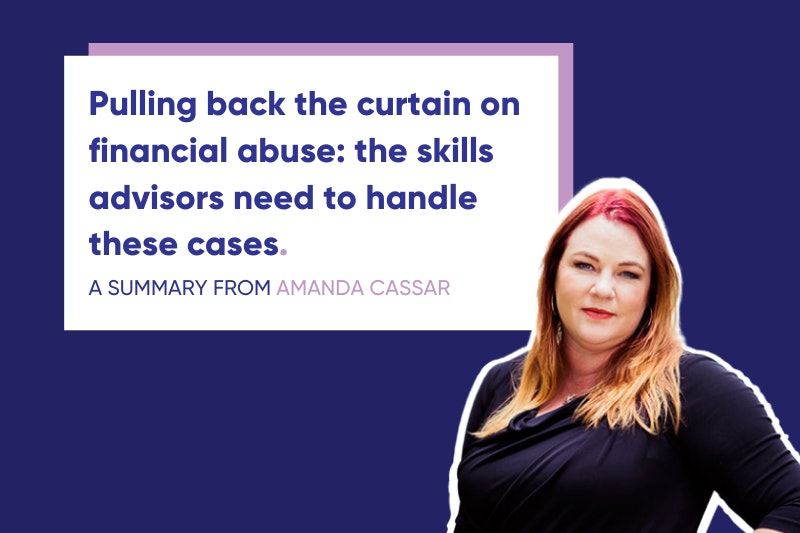 Lots of people have heard about them, have friends who have them, and most people really like the idea of having more control of their super savings – but is a Self Managed Super Fund (SMSF) really right for you?
Lots of people have heard about them, have friends who have them, and most people really like the idea of having more control of their super savings – but is a Self Managed Super Fund (SMSF) really right for you?
For some of my clients – and that’s a minority, they’re a perfect fit, but they certainly are not for all. SMSFs are really well suited to people who have larger super savings (usually $250k+) and are reasonably well educated about investing – or happy to outsource this part. Once you get the benefits of scale, you are also able to reduce the overall fees you may be currently paying. It’s often still advisable however to work with a Financial Adviser and an Accountant on the fund.
For client who just wants minimal fuss and returns in line with what markets are doing, low-cost industry funds or even retail funds are usually more appropriate. Industry funds have considerably cheaper fees than most financial institution super funds and have at times outperformed them as well. But then, you often get what you pay for – there’s limited ‘bells and whistles’ with these funds and you may not be able to nominate your preferred beneficiaries via a Binding arrangement or put in place and maintain the levels of insurance you’d prefer. Industry funds administration and call centres can also be hard to work with as their back office systems can be slow; and their staff less trained and helpful than other retail super funds. Often, there’s no-one to call and help you through the maze if you ever need to claim either.
The best place to start to work out if DIY Super is right for you is to work out the total costs of running a SMSF on an annual basis.
You will certainly have accounting costs and most Accountants can give you a ballpark figure of what you’re looking at. Depending on your level of complexity in the fund, I’ve found average fees can vary from as low as $1.2k p/a to around $5k+ p/a, but the bigger the amount you have invested, the smaller the percentage cost will be overall. You’ll also need to have the fund audited annually – which is usually around $350 – $550 depending on the Auditor.
If you’re using a Financial Adviser, there’s another cost (which most are happy to negotiate) and you could have Stockbroker fees if you choose buy and sell shares. Advisers may charge either a flat fee for advice on the fund regardless or what you have invested, or charge a percentage of the assets under management – i.e. $300k @ 1.1% = $3 300 p/a. Some may even charge entry fees on products recommended, so have a good idea of what you’re getting into first. Others are purely fee for service – but just make sure you’re happy with whatever arrangement you choose to go with.
Some industry funds are quite low cost and can start from as low as 0.8% – but again; they can vary. Most financial institiutions retail funds are around 1% for administration fees, but again, there’s much variation amongst them all. Often, you’ll have investment management fees on top as well. Some however have the flexibility to provide taxation benefits down to a member level instead of charging the Government’s flat 15% by returning individual franking credits to the appropriate investor instead of keeping them – or pooling them across all investors. Most retail funds also offer a more personal approach to insurance benefits which can greatly help with cashflow.
If you’re thinking about doing it yourself make sure you do your due diligence first – count the cost, and work out who you would like to deal with in the coming years for the funds. Understand the costs involved before jumping in, as along with your ongoing costs, there are setup costs too. You need a Trust Deed, Trustees, Beneficiaries, Investment Strategy, ASIC Registration fee, Tax File Number and maybe even GST registration. Again, you can choose to DIY or outsource.
Then, when you’re finally set up it’s important to have a well-balanced portfolio that’s in line with your Investment Strategy. Assets can be invested for income or growth within the fund and it’s good to work out what’s right for you. Will each investment pass the ‘sleep at night’ test or have you awake and worrying into the small hours? And most importantly, don’t bend that one important rule – the Sole Purpose Test. These funds by law are to be put aside to fund your retirement – and nothing else. They are certainly NOT designed for you to speculate on iffy investments, have a holiday home for the family or a great piece of art on the wall.
Again, know what you’re getting yourself in for first and be prepared to spend the time to get it right. Your own personal SMSF can be a great alternative to the public super funds if you love the idea of choice and control. However, if you’re the sort of person who’s incredibly disorganised; just too busy or not really interested in investments, then give SMSFs a wide berth.
The ATO publishes some great information on running a SMSF and what is expected of Trustees. Check out one of their guides here: http://www.ato.gov.au/content/downloads/spr46427n11032.pdf
Alternately, the Advisers at WPP would be happy to take the time out to help you do your sums and work out what’s best for your circumstances.


Latest News / Blog Post
Posted on December 21, 2010
Been thinking about starting a Self Managed Super Fund?

Tagged With: Economy | Finance | Income | Insurance | Passive Income | Protection | Report | Savings | Share Market
RECENT POSTS
CATEGORIES
Previous Articles
Head Office
P.O Box 3592, Burleigh Town, QLD, 4220
Contact Us
Phone: 07 5593 0855
Email: info@wealthplanningpartners.com.au
Office Hours:
9am - 5pm Monday to Thursday
9am - 12pm Friday
(Other appointment times by request)



Registration
WPP Licensee Services Pty Ltd
P.O Box 3592, Burleigh Town, QLD, 4220
Robina, QLD, 4226
AFSL No. 530393
ABN# 76 649 079 998
Copyright © 2023 Wealth Planning Partners Pty Ltd | All Rights Reserved | Website designed by Xenex Media


 January 18, 2025
January 18, 2025 

















